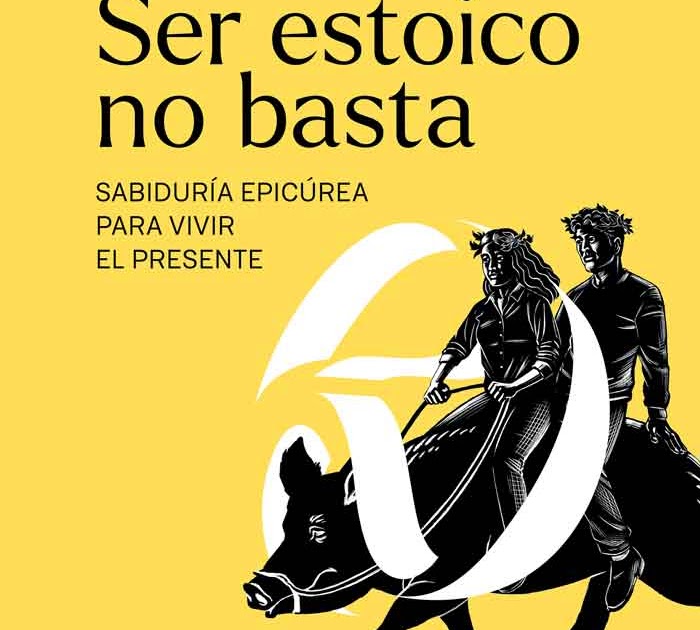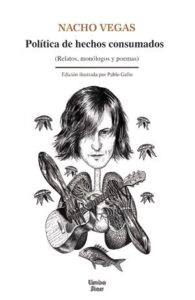
Original language: French
Original title: Carpe Diem. A little introduction to Epicurean wisdom
Translation: Franscesc Esparza Pagès
Year of publication: 2022
Valuation: Recommended (especially for those interested)
In recent years, Stoicism has experienced an unusual “boom.” And not only among humanists and academics, but also among the masses. High-profile intellectuals, coaches, executives, and various smoke peddlers alike prescribe it to face a tumultuous present and an uncertain future. Frankly, I would not be surprised if one day it is revealed that there are spurious interests behind the less serious dissemination of this philosophy, because in the wrong hands it is a way of channeling, and even legitimizing, the disappointment, precariousness and conformism to which Times we live in affect the majority of the population.
Despite its perhaps misleading instrumentalization, Stoicism is a school of thought with extremely interesting ideas. However, I believe that these do not fit well with human nature. In any case, it is impossible for me to deny that, if someone were able to apply them, their life would improve substantially. Ultimately, they help you feel satisfied with yourself, stop worrying about what you cannot control and moderate expectations, all strategies that today would serve to relate realistically to our context.
The Latinist Charles Senard also values Stoicism, but implies in the essay Being stoic is not enough that the teachings of Seneca, Epictetus or Marcus Aurelius are not enough to achieve happiness. He considers the most suitable, in that sense, to be the Epicureanism of authors such as Lucretius, Philodemus of Gádara or Horace.
Likewise, Senard wants to vindicate Epicureanism because it has been historically mistreated, first by rival schools of thought from antiquity and then by Christian theologians. Although he was called a libertine and hedonist, he “always advocated a rigorous asceticism; He was accused of being immoral, although he never stopped prescribing the practice of moral virtues such as justice, courage or friendship; “He was considered an atheist when he never denied the existence of the gods.”
Personally, I think something similar to Stoicism about Epicureanism: its precepts overestimate our ability to rise above our instincts, desires and passions. Even so, I admit, as I did with Stoicism, that, if applied correctly, they would manage to “free man from worries, help him overcome the fear of dying, teach him what pleasure really consists of and allow him to defeat death.” .» And it is that “The final object of such teachings is to annihilate the disturbance of the soul (ataraxia) and the pain of the body (amonia), an unavoidable condition for anyone who wishes to obtain happiness.”
Another valuable contribution of Epicureanism is, in my opinion, its useful classification of “desires”, since it separates those that are “natural” from those that are not, or those that are “necessary” from those that are not. For example, “sexual desire” would be “the most prominent of desires that are both natural and unnecessary (accompanied by the taste for refined foods or luxurious clothing”). As for desires “that are neither natural nor necessary,” we would have “above all avarice and blind ambition (…), to which must be added the desire for power.”
So that, Being stoic is not enough It is a curious essay that, in addition to bringing us closer to Epicureanism and various philosophical tools with which to achieve happiness, gives unusual prominence to poetry, a discipline of which the author declares himself passionate. Of course, although Senard’s encyclopedic knowledge of lyric They serve to illustrate his words with dozens of quotes, sometimes they unnecessarily lengthen a passage, or they overflow with an enthusiasm that the lay reader will not be able to share.
In summary: Being stoic is not enough fulfills when it comes to vindicating Epicureanism and synthesizing its recipes to achieve happiness. It is a pity that human beings are not up to the task of collecting and applying all classical wisdom; although can we blame him for that, if even Horace succumbed from time to time to the anguish of death?
One last note: the title with a clear commercial vocation that the Rosamerón publishing house has given to the book (Being stoic is not enough. Epicurean wisdom to live in the present), originally called Carpe Diem. A little introduction to Epicurean wisdom, does not fit the content. Firstly, because it places excessive focus on the distinction between Stoicism and Epicureanism, which Senard barely goes into. Also because it promises an application of the considered philosophy to the present, but in these pages there is hardly any passing mention of “pandemics”, “ubiquitous advertising”, “addiction to social networks”, the “welfare state”, the “humanitarian aid”, “smartphones” or “Internet”.
Source: https://unlibroaldia.blogspot.com/2023/11/charles-senard-ser-estoico-no-basta.html


